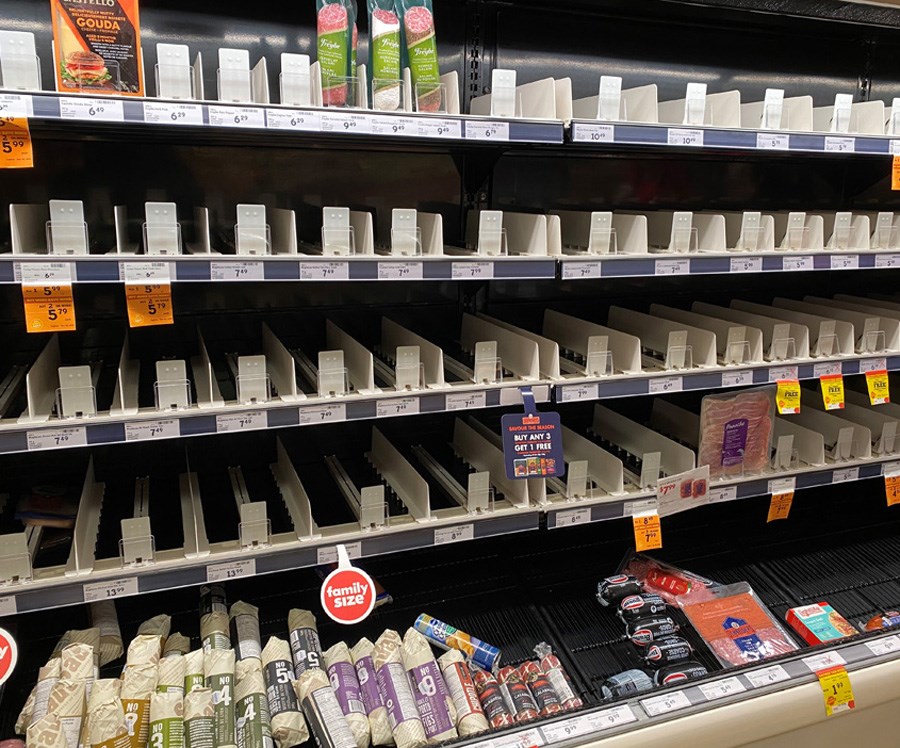Trips to Costco are generally quick for me.
There are only a few items I get there and the goal is to be in and out quick. But I’m always amazed by the ginormous loads that some people pile together at the Burnaby Costco.
And it was that curiosity that led me to chat with a shopper at the Still Creek Costco the other day as we waited in line. He was ahead of me and was pushing one of those flatbed carts that was overloaded with items. It turns out that was only one of two flatbeds as his wife was pushing one ahead of him that had even more items on it.
The line was moving slow and so I chatted with him, asking him if he had a big family.
“Just for my wife and I,” he said.
After some prodding, he let loose more details (yes, I’m nosy and drive my family crazy).
“We’re stocking up because the supply chain is collapsing,” the man said. “I’ve seen all the warning signs and I’m not taking any chances.”
He’s not the only one. I’ve seen acquaintances posting on Facebook about some sort of looming grocery store apocalypse and how we need to “be prepared.”
But is this actually happening?
Sure, I’ve seen some empty shelves at a few Burnaby grocery stores over the past month or so (see the photo above from the Kensington Safeway recently). And then there is this bizarre convoy of truckers, plus certain federal politicians, making wild claims about the impact of vaccine mandates on getting goods to stores.
But the head of one of Canada's largest grocery chains says that’s not the case.
Instead, Metro president and CEO Eric La Flèche said this week that the biggest impact on Canada's food industry supply chain has been worker absenteeism due to COVID-19 protocols.
The labour shortage caused by quarantined workers has impacted the entire supply chain — including retail stores, distribution centres and suppliers as well as transportation — driving sporadic outages of certain products, he said.
"The domino effect clearly has had an impact over the last month on supply chain," La Flèche said.
Yet while there might be less depth and variety to Metro's product assortment than usual, La Flèche said "there's still food on store shelves."
"There’s certainly less variety than there should be and we’re not as full as we’d like to be," he said. "But we’re not missing food out there."
Meanwhile, the worst of the product delays and shortages might have passed, La Flèche said.
"More and more people that were infected are back at work, both at our suppliers and in our own operations," he said. "It's improving every day. Every week, we’re getting better."
Diane Brisebois, Retail Council of Canada president and CEO, said the supply chain is being impacted by multiple factors from labour shortages to weather events like flooding and wildfires.
"I wish I could simply say it's because there aren't enough truckers, but it's much more complex than that," she said.
"In most cases we’re seeing a delay of goods, not a shortage. The shelves will get restocked, eventually."
So I don’t think Burnaby residents need to start hoarding groceries and other items like we saw during the early days of the COVID-19 pandemic.
You should be stocked up in case of an earthquake – that’s for sure – but don’t clear out store shelves out of panic.
- With additional reporting by the Canadian Press



